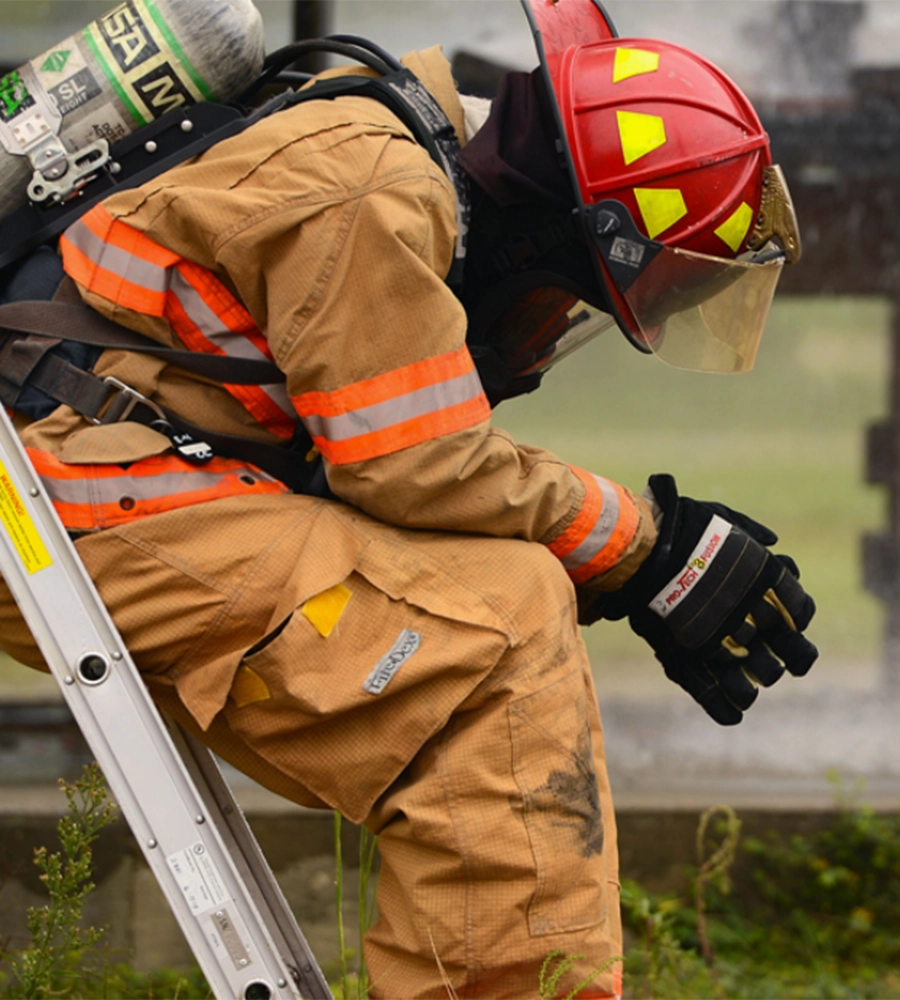First responders, especially firefighters, face unique and intense challenges. They are usually the first on the scene during emergencies, including fires, accidents, and other dangerous situations. This constant exposure to life-threatening scenarios can have a huge impact on their mental health. Many firefighters experience stress, anxiety, depression, and post-traumatic stress disorder (PTSD) due to the nature of their work. Transcranial Magnetic Stimulation (TMS) treatment offers a new and effective way to help first responders recover from these mental health challenges.
Let us see how TMS can improve mental health recovery for firefighters and why it’s becoming a popular treatment option.

What is TMS Treatment?
TMS stands for Transcranial Magnetic Stimulation. It is a non-invasive treatment that uses magnetic fields to stimulate nerve cells in the brain. This process helps regulate mood and can be especially helpful for people dealing with depression, anxiety, and PTSD.
TMS is different from traditional treatments like medication or talk therapy because it directly targets the brain using magnetic pulses. It is a safe procedure, approved by the FDA, and has been used successfully to treat mental health conditions, especially when other treatments haven’t worked.
Why First Responders Need Mental Health Support
Firefighters regularly face traumatic events. They rescue people from burning buildings, witness accidents, and sometimes deal with the loss of lives. These situations can leave a lasting mark on their mental health, causing:
Chronic stress: Firefighters often have high stress levels due to unpredictable, high-pressure situations.
Anxiety and depression: The constant exposure to danger and suffering can lead to feelings of sadness and fear.
PTSD: Firefighters may relive traumatic events, leading to flashbacks, nightmares, and severe emotional distress.
Without proper mental health support, these issues can worsen over time. First responders i.e. firefighters need effective treatments to recover and continue their important work.
How TMS Treatment Works
TMS works by stimulating certain areas of the brain with magnetic pulses. These pulses help improve communication between brain cells, particularly in regions that control mood and emotional regulation. Here’s a step-by-step breakdown of how TMS works:
Consultation: The first step is a consultation with a mental health professional. They will determine if TMS is a suitable option based on the individual’s mental health condition.
Mapping the brain: During the procedure, doctors map out the brain to identify which areas need stimulation.
Magnetic pulses: The patient sits in a chair, and a coil is placed on their head. The coil sends short, painless magnetic pulses to the targeted areas of the brain.
Treatment sessions: Each session lasts around 30-40 minutes, and patients usually undergo 5 sessions per week for several weeks. TMS doesn’t require anesthesia, and patients can return to their normal activities immediately after each session.
Benefits of TMS Treatment for Firefighters
TMS treatment offers several key benefits for first responders:
Effective for Treatment-Resistant Depression
Many firefighters struggling with depression or PTSD may try medications and talk therapy, but these traditional methods don’t always work for everyone. For those who have not responded to these treatments, Transcranial Magnetic Stimulation (TMS) has proven to be an effective alternative. It has shown positive results in improving mental health. Facilitation centers equipped with cutting-edge technology, like Delray Brain Science, offer TMS treatment to help firefighters and others overcome these mental health challenges more effectively.
Non-Invasive and Painless
One of the main benefits of TMS is that it’s non-invasive. Unlike more aggressive treatments like electroconvulsive therapy (ECT), TMS doesn’t require surgery or sedation. Patients can sit comfortably during the procedure without feeling any pain.
Improves Mood and Emotional Regulation
TMS targets areas of the brain associated with mood regulation. By stimulating these regions, the treatment can help firefighters feel more in control of their emotions, reducing anxiety and depression.
Reduces PTSD Symptoms
Firefighters who experience PTSD often struggle with flashbacks, nightmares, and severe emotional responses. TMS has been shown to reduce these symptoms by calming hyperactive areas of the brain that are linked to trauma response.
Minimal Side Effects
Unlike medication, which can cause various side effects like nausea, fatigue, or weight gain, TMS has very few side effects. The most common one is mild scalp discomfort where the magnetic pulses are applied, but this usually subsides after the first few sessions.

How TMS Fits Into a Mental Health Recovery Plan
While TMS is highly effective, it works best when combined with other mental health treatments. Here’s how it can fit into a firefighter’s overall recovery plan:
Therapy
Talk therapy, such as Cognitive Behavioral Therapy (CBT), helps firefighters process their emotions and develop coping strategies. Combining TMS with therapy can enhance the benefits by improving mood regulation and reducing negative thought patterns.
Peer Support
Many firefighters benefit from peer support groups where they can talk openly about their experiences with others who understand their challenges. This sense of community, combined with TMS treatment, can accelerate recovery.
Healthy Lifestyle Choices
Maintaining a healthy lifestyle, including regular exercise, a balanced diet, and enough sleep, is important for mental health. TMS can provide the brain support needed to make these positive changes more effective.
Who is a Good Candidate for TMS?
Not everyone is a suitable candidate for TMS treatment. It is important to consult with a healthcare provider to determine if TMS is a good option. Firefighters who may benefit from TMS include those who:
- Have tried other treatments like medication or therapy without success.
- Are dealing with chronic depression, anxiety, or PTSD.
- Want a non-invasive treatment option.
- Do not have any metal implants in or around the head (since magnetic pulses could interfere with metal devices).
What to Expect During Recovery
TMS treatment doesn’t require downtime. Firefighters can continue their daily activities without interruption. Over time, they may notice improvements in mood, sleep, and their ability to handle stress. It is important to attend all scheduled sessions to see the full benefits.
Conclusion
Firefighters are true heroes, but their work has significant mental health challenges. The high levels of stress, trauma, and emotional pressure they face make them vulnerable to conditions like depression and PTSD. TMS treatment offers a modern, effective solution to these problems. By stimulating areas of the brain involved in mood regulation, TMS helps improve mental health recovery in a non-invasive and low-risk way.
If you or someone you know is a firefighter struggling with mental health challenges, consider discussing TMS treatment with a healthcare professional. It could be the key to recovery and a healthier future.







